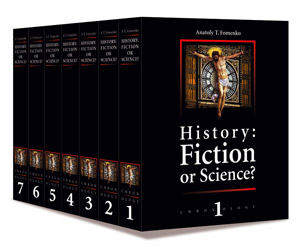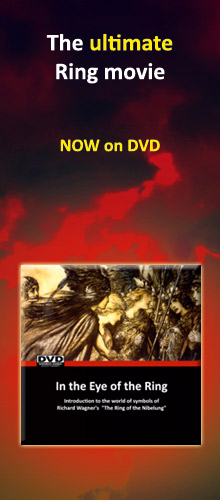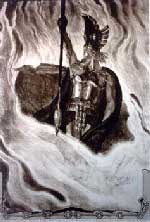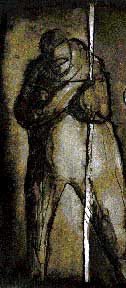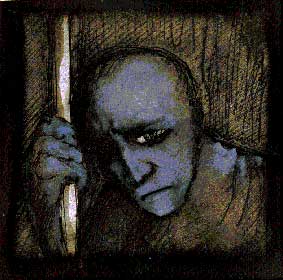![]()

![]()
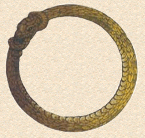
|
opera online sitemap |
||
Wotan :
Wotan is a being who in spite of his failings is endowed with real nobility; he is a God full of imposing presence and a victim of circumstances. But the Wotan depicted by Wagner the Creator seems under a sharply less favourable light. Certainly he has rather nice sides: when he leaves his daughter his good-byes are moving, also he shows a patient affection for his impertinent grandson. But an avalanche of misdeeds erases these positive features. To speak clearly, Wotan is a noble villain. Noble, but villain all the same. He was well judged by Fricka, Loge, Brünnhilde and Alberich who know him very well. He is the quintessence of political pleasure-seeker and hypocrite. First characteristic: his basic instability. Wotan is tired. He feels a constant need of change; he is a nomad. We can strongly suspect that without Fricka's, Froh's and Donner's instigation (stay-at-home Gods jests Loge), Wotan would have never made the pact with the giants. When Loge details the solidity of bulwarks, he cannot hide his irritation and asserts to his wife that never stony walls will chain him. It is this need to push away the borders, this appetite of new sensations that urged him to appropriate the source and to roam the world in search of human conquests.
Odin's lance kills the giant who resists him. That of Wotan, guarantor for treaties, protects his opponent. The central drama of Wotan lies in the contradiction locked into the Lance: it gives the power but limits it. The fatal fracture results from what he always hoped to escape: the pact with the Giants. By doing this, he digs a gaping pit to fill a modest hole. The fracture only widens, which is what happens to all those who practise treachery. Third feature: his hypocrisy and its duplicity. He quickly adapts the sophism of Loge: " to steal a thief is not to steal ". The God of Lies reasons that on one side the Ring belongs to him legally, but on the other side reminds Wotan that he should return it to the legitimate owners. Wotan reacts brutally, as some vulgar Mafioso:" I have it, I keep it, your promises do not bind me ". The hypocrisy results from the contrast between the corruption of the God (which according to Wagner makes him vulnerable to the curse of the Ring), and the claim of virtue. With Gunther and to a certain extent Fricka and Hunding, Wotan is the most grumpy character of the Ring, the one that claims status, respect, and nobility. The music, which accompanies it, proves it.
Fourth feature: the weakness of his character. He jumps from excitement and triumphalism to suicidal depression. The authoritarianism hides a profound insecurity. When he is short of arguments, he falls in sad apathy or explodes in excesses of uncontrolled and suicidal fury. The Walkyries are afraid of him, and Waltraute describes very well the state of pathological bewilderment, which seizes him closer to the end. Since Siegfried hurt his vanity to death, his image broke: he collapsed. Worse still, he becomes incapable of an articulated thought. Death seizes an old man whose decay made him completely senile!
|
|||||||||||
|
[an error occurred while processing this directive]
|
|||||||||||
Free DHTML scripts provided by
Dynamic Drive
